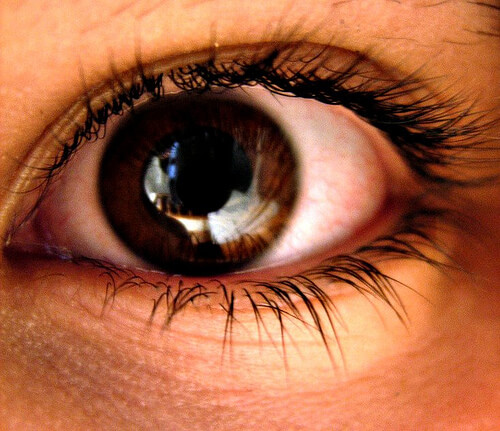Why It's Important to Fight And Treat Constipation

How many times per day do you have bowel movements? Did you know that ideally, we should go to the bathroom once after every meal? We might feel that it is normal to go to the bathroom just once a day. Since we usually don’t go that often, we resort to the use of laxatives. Keep reading to find out why it is so important to fight and treat constipation as well as some natural tips to do so.
In this article, we’ll explain the truth about how to fight and treat constipation. Read the fundamental reasons why you should use foods and/or natural supplements to prevent health problems.
What happens when we’re constipated?
When we suffer from constipation, the fecal remains and is not excreted. It will accumulate in our gut and increase the proliferation of bacteria. Some bacteria is healthy when it’s balanced; however, when the levels increase and waste ferments or rots, we may suffer from numerous health problems.
Here are a few other reasons why you should fight and treat constipation right now.
The absorption of toxins
The colon is where nutrients are transferred into the bloodstream. If we suffer from constipation, the harmful substances will enter our bloodstream through the intestinal walls. These are toxins and poisons that will spread throughout the body.
So, our body will gradually intoxicate itself and generate degenerative or chronic diseases. Some of these are: inflammation, cysts or tumors, joint problems, skin problems, overload the liver and kidneys, etc.

Read also: 12 Surprising Benefits of Eating Granola for Every Breakfast
The proliferation of parasites
Intestinal parasites appear in the intestine that has been overloaded with toxins, as previously mentioned.
The best known one is Candida Albicans, but there are other common types, such as lamblias, roundworms or tapeworms. They generally produce the following symptoms:
- Eating disorders (excess or lack of appetite for no apparent reason)
- Puffy eyes
- Anxiety and nervousness
- Itching on the tip of the nose, eyes or in the anal area
- Dilated pupils
- Worsening of bowel disorders (constipation, diarrhea )
- Insomnia for no apparent reason
- Tiredness
- Headaches

Inflammation of the intestinal walls
If we don’t suffer from constipation frequently, we don’t need to be alarmed. However, if we suffer from constipation throughout our lives or for long periods of time, we do need to put a stop to it. This can also cause progressive inflammation of the intestinal wall. The condition may get worse if we’re also consuming medical or even natural laxatives, such as senna.
Our intestinal walls are linked to our immune system, so if they are affected, we may suffer recurrent cases of flu, sore throats, colds, allergies, etc.
How should we eat to treat and prevent constipation?
Ideally, when we eat three meals a day, we experience bowel movements three times a day at regular times. This might be unrealistic for most people, but it should be at least twice a day to make sure that our intestines are working properly. It depends on how much we excrete.
What should a healthy stool look like?
Other barometers to consider, in addition, the number of bowel movements, include:
- Smell: It should not be too odorous. Yes, there are some foods that can give off a stronger odor, like onions or cabbage.
- Texture: The texture should be normal, not too dry (as often happens in constipation) or too soft (more common in most vegetarian diets).
- Color: The color should be medium brown, but we also know that some foods such as beets or green leafy vegetables can stain the stool.
- Do they float? Some stools float in the toilet, and the most common reasons may be excessive gastrointestinal gas or the malabsorption of fats.
- We must learn to chew better.
- Avoid foods that cause flatulence, and be alert to possible food intolerances.
- The assimilation of fats is directly related to the liver and gallbladder. So, we can take any medicinal herb to help these organs, such as boldo, milk thistle or dandelion.
When we have a bowel movement, we should be able to have it without much effort, without getting a feeling of not having emptied the bowels.
Do not treat yourself without consulting a physician or therapist to fight and treat constipation.
Image courtesy of relaxingmusic, Mukleman
All cited sources were thoroughly reviewed by our team to ensure their quality, reliability, currency, and validity. The bibliography of this article was considered reliable and of academic or scientific accuracy.
- Garza, J. M., & Kaul, A. (2014). Constipation. In Pediatric Gastroenterology: A Color Handbook. http://doi.org/10.1201/b16722
- Costilla, V. C., & Foxx-Orenstein, A. E. (2014). Constipation in Adults: Diagnosis and Management. Current Treatment Options in Gastroenterology. http://doi.org/10.1007/s11938-014-0025-8
This text is provided for informational purposes only and does not replace consultation with a professional. If in doubt, consult your specialist.








